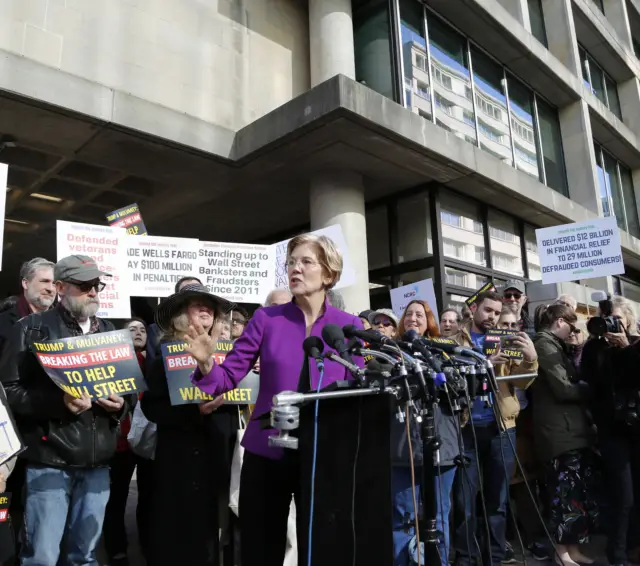Senator Elizabeth Warren has introduced a bill that would bring a major relief for millions of student loan borrowers nationwide.
Warren, who is also seeking Democratic presidential nomination, introduced bicameral Student Loan Debt Relief Act with Representative James E. Clyburn to forgive loans of up to $50,000 for those whose household gross income is less than $100,000.
Endorsed by more than two dozen organizations, the legislation would allow the federal government to automatically cancel the debt of borrowers using already available data on household gross income and pending student loan debt.
Students holding private loans would also be eligible for loan forgiveness by converting their private loans to federal student loans through student loan refinancing.
“My very first bill when I got to the Senate was legislation to tackle the growing student debt crisis because I was sick of Washington allowing the wealthy to pay less, while burying tens of millions of Americans in mountains of student loan debt,” said Senator Warren.
“Since then, Washington has only allowed this crisis to get worse-especially for people of color. Enough is enough.”
Today @WhipClyburn & I are officially introducing our Student Loan Debt Relief Act to cancel student debt for millions of Americans, end the student debt crisis, & help tackle the racial wealth gap. Tune in live to our announcement. #CancelMyDebt https://t.co/WJGsqPrdCK
— Elizabeth Warren (@SenWarren) July 23, 2019
Nearly 42 million Americans collectively owe $1.5 trillion in student debt, and 7.2 million individuals are currently in default on those loans. Borrowers of color are significantly affected by such loans.
A recent study conducted by the University of Illinois and the University of Michigan found that loans negatively affected the wealth accumulation of Black and Hispanic adults who owed an average of $14,670 when they graduated, compared to $2,946 for students of other races.
Last month, Senator Bernie Sanders (D-VT) introduced similar legislation that would completely eliminate the outstanding $1.6 trillion in student debt by imposing a tax on Wall Street. It would also make two and four-year public and tribal colleges and universities tuition-free and debt-free.
During the implementation phase, the new bill would put one year freeze on wage garnishment, loan repayments, and interest accrual. It would also bring the forgiven debt under the ambit of nontaxable income.
“Post-secondary education should be the springboard to enable students to achieve their dreams not the impediment that prevents the realization of those goals,” Clyburn said.
“Crushing student debt has reached crisis levels in America requiring big, bold solutions,” he added.
Last week, Warren introduced the College Student Hunger Act of 2019 to secure food for low-income students on campuses and make Supplemental Nutrition Assistance Program (SNAP) more accessible.



